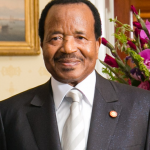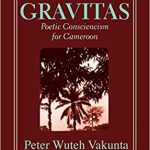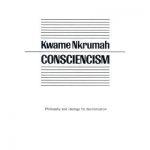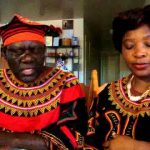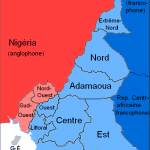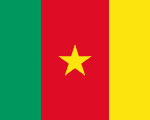Dipesh Chakrabarty. Source: Wikimedia
Historical wounds
This section will explain the theoretical framework through which we analyze Vakunta's poem. The first conceptual framework is Dipesh Chakrabarty's historical wounds. Chakrabarty developed this concept in the realization that "some marginal and oppressed groups owed their present disadvantages in the main to discrimination suffered in the past" (Chakrabarty, 2007: 78). The historical fact of past injustice constitutes the basis for historical wounds, but the two are not the same. Historical facts are - to a certain extent - verifiable by historical research, but historical wounds are "a particular mix of history and memory" (Chakrabarty, 2007: 77), and are therefore not subject to verification. Moreover, something simply happening is not enough to constitute a historical wound; the historical fact on which a historical wound is based must be disclosed and remembered by its bearers. To illustrate this, Chakrabarty gives the example of Australian Aboriginal stolen generations, "the generations of Aboriginal children who were forcibly removed from parental custody by the colonial government in Australia or missionary agencies" (Chakrabarty, 2007: 78). Addressing this historical injustice and speaking of it as stolen generations "was a matter of speaking to a sense of historical wound" (Chakrabarty, 2007: 78). This is part of the process of "healing" the wound: "to speak of the wound or to speak in its name is already to be on the path to recovery" (Chakrabarty, 2007: 77). Historical wounds are thus not permanent, but can be healed. Naming and recognizing the wound are thus essential in constituting it, but at the same time in healing it.
Given the fact that remembering plays an essential role in historical wounds, they are a subjective affair. Therefore, "the politics of historical wounds often pose a challenge to the discipline of history by seemingly privileging 'experiential' access to the past" (Chakrabarty, 2007: 79). The ones who suffer as a result of historical wounds can understand their past best through a variety of ways; new ways of knowing the past and relating to it are enabled. As an example, Chakrabarty cites Anthony Birch, an Aboriginal poet and historian, who prefers poetry over history to understand his past. Birch writes:
Academic history is a very limited discipline, particularly in its ability to represent the past. 'Professional' history poses truth and fact through the authority given to empiricism […] The past is sometimes represented equally, or at times, more accurately through a range of textual forms, including story-telling and poetry
By privileging artistic representations of the past over academic ones, using the concept of historical wounds allows us to see Vakunta's poem as a re-writing and re-understanding of his history. His poem is a way to heal and make sense of his historical wound, caused by the Cameroon Crisis - which itself is deeply rooted within the historical injustice of European colonialism.
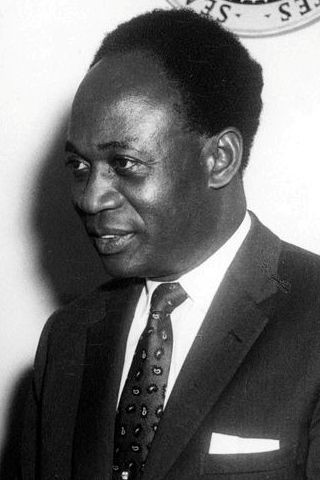 Kwame Nkrumah. Source: Wikimedia
Kwame Nkrumah. Source: Wikimedia
Consciencism
The second conceptual framework through which we read the poem is consciencism. Sometimes called Nkrumaism, consciencism is the philosophy developed by Kwame Nkrumah, the first president of Ghana, known for his anticolonialism and pan-Africanism. Vakunta explicitly refers to consciencism in the subtitle of his poem. While being the first president of Ghana, Nkrumah developed his theory of Pan-Africanism and communalism. According to him, pre-colonial African societies did not have individual ownership or class structures, and societies were structured around the values of communalism and egalitarianism (Smith, 1991: 33). Although the colonists damaged these values, they did not fully abolish them. The theory calls for a return to these egalitarian and communal values through socialist political structures. In contrast to the West - where a revolution is necessary to go from capitalism to socialism - in Africa socialism can be reached by a return to the precolonial values. Nkrumah writes that "the passage to socialism lies in reform, because the underlying principles are the same" (Nkrumah, 1964: 74).
Nkrumah argues that returning to traditional values will heal the wounds caused by colonialism and will allow further development of African societies. While colonialism did the most damage to the African continent, there are in total three conflicting ideologies on the continent: one which contains the traditional way of life, one consisting of the Islamic tradition and a third segment that comprises the European culture and Christian tradition as a result of colonialism and neo-colonialism (Nkrumah, 1964: 79). Coexistence of the contrasting elements hinders African development. Harmony can only be found when the Islamic and Christian traditions are in tune with the original humanist and egalitarian principles of African society: "a harmony that will allow the combined presence of traditional Africa, Islamic Africa and Euro-Christian Africa, so that this presence is in tune with the original humanist principles underlying African society" (Nkrumah, 1970: 70). According to Nkrumah, this ideology of New Africa can only be founded on a continental scale; free development of each country in Africa is the condition for the free development of the whole continent. The liberation of one country is meaningless without African Unity (Smith, 1991: 33).
Philosophical consciencism shows that there are two forces at tension in the (post-)colony: positive action and negative action. The former is made up by the sum of the revolutionary forces, forces that seek to abolish exploitation and oppression by weakening the enemy and strengthening the people, the latter by the sum of reactionary forces. Negative forces tend to support colonialism by ensuring that the colonial powers maintain political ties with the former colonies (Kwesi, 2016: 191). In a colonial territory negative action exceeds positive action, and in order to attain independence, positive action should surpass negative action. As an ideology, consciencism directs action towards the collective political, economic and social objectives. In the text "The Ontology of Kwame Nkrumah's Consciencism and the Democratic Theory and Pratice in Africa: A Diopian Perspective" Boadi writes
Nkrumah presents consciencism as a philosophy and an ideology that must stand behind the necessary social revolution that seeks the emancipation of the African continent through the restitution of the ethical egalitarianism of human society
In short, if positive action outweighs negative action, Africa can truly decolonize and unite by returning to its precolonial values.
While we use both theoretical frameworks to understand the poem, they have different functions. Historical wounds serve as a broad and underlying theory through which we understand the function of the poem for Vakunta; the poem is a step in healing his historical wounds. We use consciencism, on the other hand, to understand what message he wishes to convey to his audience. That is to say, we use it to understand the poem's relation to the outside world, whereas we use historical wounds to analyze the relation between the poem and Vakunta himself.
We suggest reading the section about the analysis of the poem next.




